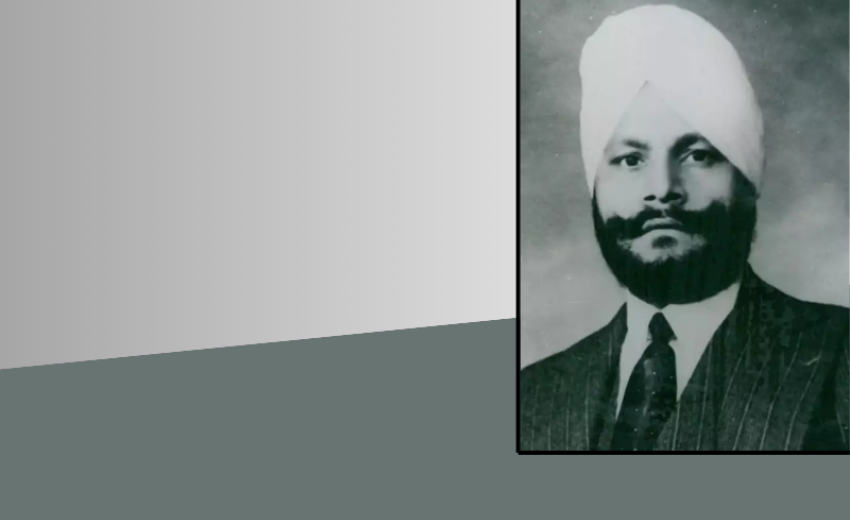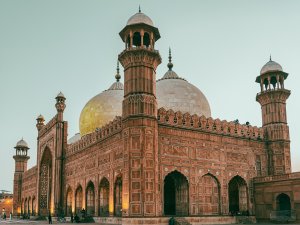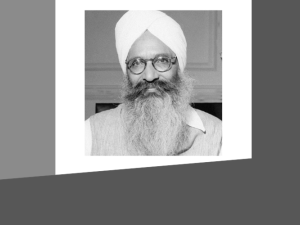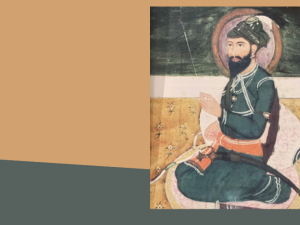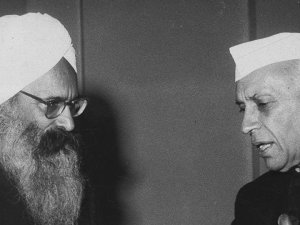Three Indian leaders Jawahar Lal Nehru, Mohamad Ali Jinnah and Baldev Singh signed the declaration of Independence on behalf of India in London (1947 A.D.). One can judge the importance of Baldev Singh who represented Sikh community in those crucial historical times.
After hundreds of years of Muslim rule, India remained a territory of British Empire for two centuries. After a long struggle for freedom British Government under Prime Minister Attlee decided to leave India in 1947.
Unfortunately, British Government under pressure of Muslims bifurcated India in two parts creating Pakistan as an independent country, comprising half of Bengal in the east, majority of Punjab, Sindh, Blacuchistan and NWFP states. Punjab, which was a Muslim majority state, was divided because of the decision of the Sikhs to go with India.
S. Baldev Singh was born on 11th July 1902 in the village of Dumna in Ambala Distt. of Punjab. His father, Sir Inder Singh was a reputed Industrialist having a big steel plant in Jamshedpur. Baldev Singh studied in a Khalsa School and subsequently in Khalsa College at Amritsar and later joined his father business. He was picked up by Master Tara Singh and was elected as an Akali MLA in Punjab Assembly in 1937. He donated huge money for establishing Sikh National College in Lahore. To help the villagers his family set up Khalsa High Schools in Ropar, Ambala, Kharar, Kurali, and Khant Manpur which are even now functioning in massive buildings.
Baldev Singh with his political skill was able to negotiate a pact of Akali party with Sikander Hayat Khan the then Prime Minister of Punjab. Under which many facilities were granted for the Sikhs. Baldev Singh remained a Minister in Punjab from 1941 to 1946. When the Cripps Mission arrived in India in 1942, Baldev Singh was chosen to represent the Sikh community along with other leaders. Indian National Congress launched Quit India Movement in 1942 during the Second World war but the Akalis did not support it. It was at that time that Master Tara Singh, Maharaja Yadvinder Singh of Patiala and Baldev Singh exhorted Sikhs to join Indian Army. That was a well thought of decision which ultimately went in the favour of Sikhs and India. Indian Army had maximum Muslim and Sikh recruits. Thus, when the division of the country took place, India could depend upon the Sikh soldiers who defended Kashmir in 1948.
It was a thoughtful decision of Baldev Singh to launch a Sikh Newspaper in Lahore. Ajit in Urdu not only highlighted the view point of the Sikhs but also succeeded in countering the arguments of Muslim League. Sadhu Singh Hamdard was the Editor of Ajit and he was an active member of all Sikh delegations during this crucial period. (The autobiography of Hamdard is the most authentic record of the Sikh struggle during partition).
Cabinet Mission came to India on 16th May 1946. During their meetings with different political parties it was felt that British were conceding substantial claims of Muslims. Baldev Singh represented Sikhs but after the meeting the Sikhs rejected their proposal and announced boycott. On request of Jawahar Lal Nehru, Panthic Board retracted and agreed to join the interim Government which was formed on 2 September, 1946 headed by Nehru. Baldev Singh was the Sikh nominee in the cabinet. In his place Swarn Singh joined as Minister in Punjab Cabinet.
In March 1947, to build their pressure Muslim League launched Direct Action in Punjab. The Sikhs and Hindus in West Punjab especially in Rawalpindi division were killed and villages were burned. Baldev Singh accused the British administration specially the Army for not taking any steps to save the innocent people.
The Akali Assembly party met in Lahore on 4th June 1947 and unanimously decided to oppose Pakistan and go with India. On that account British Government, announced the partition of Punjab and appointed a boundary commission headed by Redcliff. In the commission report justice was not done to the Sikh demand of Nankana Sahib and the districts of Layallpur and Mintgomery to be included in India. The Sikhs felt cheated and highly dismayed by the British Government for whom they had sacrificed almost one lakh soldiers in the two World Wars. During negotiations it was told that there was no Sikh majority area in Punjab which could be a base for a separate country. They left to the Sikhs to join India or to remain in Pakistan. Sikh refused all offers of Jinah duly supported by British Government to lure Sikhs to agree for supporting Pakistan.
Lord Mount Betan, Viceroy of India at the request of Master Tara Singh and Baldev Singh changed the boundary commission report and added Ferozpur, Zira and Gurdaspur to India which were earlier allotted to Pakistan. This was a significant achievement because the Ferozpur canal head works remained in India.
India got Independence on 15th August 1947 and in the new cabinet headed by Nehru, Baldev Singh was appointed India’s first Defence Minister. He provided support and relief to over 10 million Hindus and Sikhs who came to India as refugees. It is estimated that over 1 million people were killed during partition. Baldev Singh’s contribution in reorganizing Indian Army has been praised by everyone. Indian officers replaced the Britishers. In 1948 there was an all out attack on Kashmir by the tribals, supported by Pakistan Army. History will never forget that within a short time and having no road network, Indian soldiers threw back the invaders and saved the major portion of Kashmir. Army was most unhappy that without their consultation and involving Defence Minister Baldev Singh Nehru on his own announced ceasefire. Indian Army had another victory to include defiant princely state of Hyderabad in India.
Selection of Chandigarh as capital of Punjab was at the behest of Baldev Singh. He was MLA and Member of Parliament of that area. Akali Party led by Master Tara Singh organized protests accusing Nehru for not fulfilling the promises made to the Sikhs at the time of Independence. Baldev Singh tried his best but Nehru remained totally non-committal towards Sikh demands. Baldev Singh was in a precarious position of being an Akali and not getting support from Central Government. He remained most unhappy person and Nehru did not include him in the new Cabinet in 1952. Swaran Singh was taken in his place. Baldev Singh was elected Member Parliament in 1952 and again in 1957. People criticized Nehru for betraying Baldev Singh inspite of his historic role for India.
S. Baldev Singh passed away 29 June, 1961 in Delhi.
